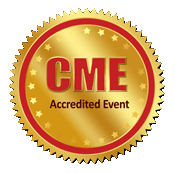Eshetu Nigussie
Madda Walabu University, Ethiopia
Title: Serological evidence of dengue fever and its associated factors in health facilities in the borena zone, South Ethiopia
Biography
Biography: Eshetu Nigussie
Abstract
Background: Dengue Fever (DF) is a re-emerging public health threat in Ethiopia. Yet, little is known about the epidemiology and risk factors of dengue infection in the region. In this study, the seroprevalence and associated risk factors of dengue virus infection were assessed in the Borena Zone health facilities.
Methods: A hospital-based cross-sectional study was conducted from July to August 2016. A total of 519 consecutive acute febrile patients attending the outpatient departments of Teltelle Health Center, Yabello and Moyale Hospital were enrolled. Data on socio-demographic and environmental risk factors were collected using a structured questionnaire. Three to five-milliliter blood samples were collected from all participants and screened for dengue virus exposure using an indirect immunofluorescent assay.
Results: The overall prevalence of anti-DENV IgG and IgM was 22.9% and 7.9%, respectively. DF serostatus was influenced by gender (adjusted odds ratio (AOR)=1.72; 95% CI 1.01-2.94), place of residence (AOR=2.69; 95%CL 1.55-4.64) that had a higher rate of exposure and recalling of a recent mosquito bite (AOR=2.98; 95% CI 1.51-5.89) probably imply recent and/or ongoing active transmission.
Conclusion: This study showed that DF could potentially emerge as a public health threat in the study area. In addition to that, the observed low awareness of participants underlines the urgent need for further communitybased studies to determine the environmental and host factors that determine the extent of exposure to dengue virus infection in the area for appropriate control and prevention planning.

